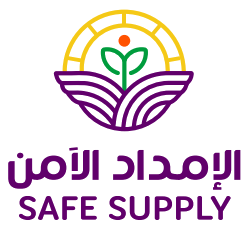The sorts of chemical fertilizers vary based on the types of plants. In fact, they are applied so that crops produce plentiful numbers of high-quality products. This makes it simpler for farmers to market and sell them in order to maximize their return on investment.
Before using chemical fertilizers, it is necessary to provide the basic factors for plant growth naturally, such as sunlight, water, and carbon dioxide. In addition, they should be planted in fertile soil that contains the essential nutrients for their growth. However, the lack of elements can be compensated for through fertilizers of all types that are rich in plant needs. We shall explore the many forms of chemical fertilizers and their usefulness to plants in this post.
chemical fertilizers
What are chemical fertilizers
They are synthetic chemical compounds that are given to the soil in order to improve soil fertility and increase agricultural crop yield
It contains various critical ingredients for both soil and plants, including nitrogen, potassium, phosphorus, and a variety of other chemical elements. It is worth mentioning that fertilizer components vary depending on the demands of the soil and plants for the elements, as well as the nature of the climate
The importance of chemical fertilizers
Farmers use chemical fertilizers to increase soil fertility and compensate for the lack of basic elements that contribute to the growth of plants naturally and with high production without affecting their quality or weakening soil fertility, as well as to contribute to the reduction of plant diseases caused by a lack of essential soil elements, such as wilting leaves and yellowing.
Its importance lies in the following:
The ability to manage the quantities that suit the nature of the plants and the soil’s demand for them.
Prices are low when compared to organic fertilizers.
Its primary goal is to boost the productivity of various agricultural crops.
Providing the soil with the necessary nutrients has a favorable effect on the plants, improving their production and quality.

Disadvantages of chemical fertilizers
Despite the numerous benefits of chemical fertilizers; excessive use may cause damage to the crop and soil; for instance:
-
The excessive use results in excessive acidity of the soil. This, in turn, alters the soil’s qualities by raising its acidity above the usual rate, so severely affecting crop development.
-
Frequent use reduces the essential elements and minerals in the soil, producing ripe fruits lacking critical minerals and vitamins.
-
The rapid dissolution of chemical fertilizers leads them to leak into the ground without fulfilling their intended purpose. It accumulates as a hard layer within clay soil and may also contaminate groundwater.
-
Some farmers improperly use it, exposing plants to numerous illnesses and negatively compromising the quality and quantity of crop production as well as the fertility of the soil.
-
The constant use of chemical fertilizers leads to the emission of poisonous chemicals into the atmosphere, such as carbon dioxide, which causes decreases for living things.
What components make up chemical fertilizers?
Chemical fertilizers provide essential ingredients that help the nourishment of the soil. The most effective chemical plant fertilizers are:
-
Nitrogen fertilizer: This kind of fertilizer contains nitrogen as a vital ingredient. Nitrogen is the major component of green chlorophyll, which is responsible for balancing the photosynthesis process, which is necessary for plant development.
-
Potassium fertilizer: Potassium is essential for plants as it protects plants from diseases. It strengthens the stems, roots, and leaves and protects them from yellowing.
-
Phosphorous fertilizers. Phosphorus is important because it stimulates the growth and reproduction of cell protoplasm and strengthens roots. It promotes the growth of stems, fruits, and leaves.
-
Mixed fertilizer. It contains more than one of the three essential components, namely nitrogen, phosphorous, and potassium.
-
Secondary fertilizer: It contains secondary components that the plant requires, such as sulfur, magnesium, and potassium.
Water soluble fertilizers
This sort of fertilizer is suitable for potted plants to give them the necessary nutrients or complement their growth. However, when using this kind of fertilizer, the farmer should apply it in the right and proper way. The most significant nutrients it contains are iron, manganese, and zinc.
Chemical fertilizers have a favorable effect on plants when used correctly and appropriately—considering that it is used in accordance with the advice of a professional to guarantee that the most significant benefit is obtained. For more information about Chemical fertilizers and many other agricultural issues, please visit the Safe Supply website..



